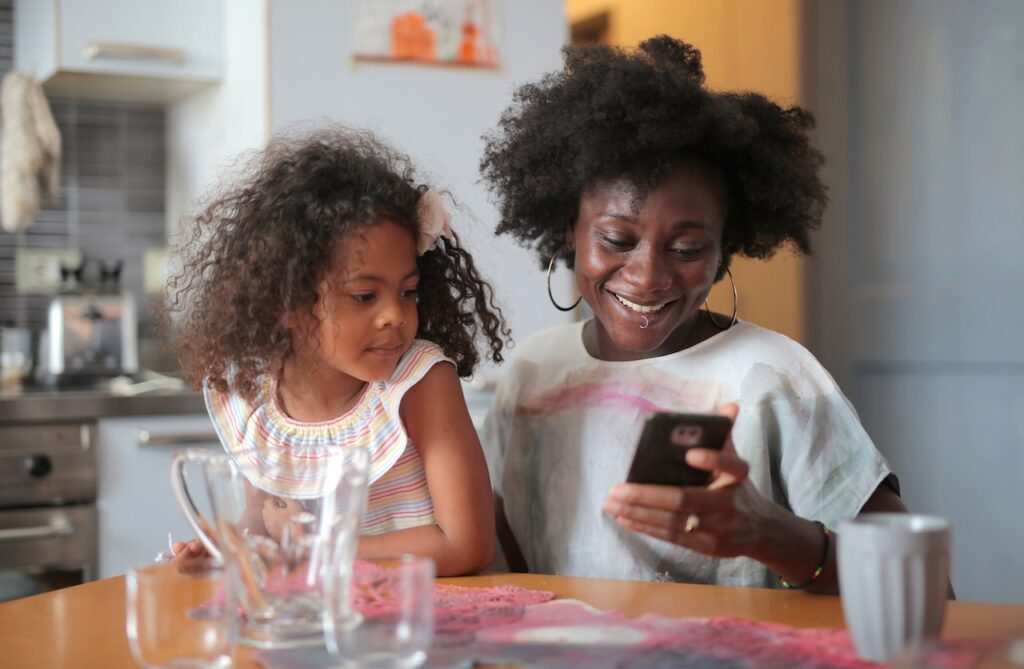Social media platforms connect people worldwide and are great for sharing information and experiences. Kids often use different social media platforms too, such as Facebook, Instagram, Snapchat, TikTok, YouTube, and others.
The increased usage of social media platforms can have a significant impact on our kids, both positively and negatively. And sometimes social media can be dangerous.
So, you might ask yourself if parents should have access to their child’s social media.
Pros of Parental Access to Child’s Social Media

Although children don’t like it, there are many pros of parental access to their child’s social media. Parents can’t always rely on their trust in their children because children sometimes tend to lie. So, in the following paragraphs, we’ll closely look at some pros of parental access to social media.
· Ensuring Children’s Safety Online
We want to make sure that our children are safe from the moment we allow them to use social media. Checking on your children’s social media to ensure their safety online is justified.
It’s OK to check who your children chat with, what pages they follow, which groups they’ve joined, etc. This way parents can protect children from exposure to online threats.
· Regulate Screen Time and Social Media Addiction.
With our parental involvement in our children’s social media accounts, we can ensure the amount of time they spend on social media is controlled. Kids with limited screen time develop healthier social media habits.
· Identifying and Addressing Cyberbullying and Other Inappropriate Behavior
Studies show that about 87% of teenagers have witnessed someone getting cyberbullied, which is a pretty high number.
By having access to children’s social media accounts, parents can check their profiles, detect, and report inappropriate content.
Cons of Parental Access to Child’s Social Media

We parents can justify our “spying” on our kids as much as we want, but the fact is that there are also cons of parental access to social media, which we’ll quickly cover in the next few paragraphs.
· Violation of Privacy and Trust
By constantly pressuring and spying on our children we force them to lie to us and create fake profiles. By trying to protect them from one problem but we cause several other new problems.
· Negative Impact on Parent-Child Relationships
We can’t build strong relationships with our kids if we constantly spy on them. Children will get ashamed or annoyed by us, and won’t trust us anymore.
Not having a strong parent-child relationship affects your child’s online safety, and the risk of your child running into dangers online gets bigger.
· Limiting Children’s Freedom to Express Themselves Online
The constant feeling that they are watched can make children insecure and afraid to express themselves both offline and online.
How to Monitor Your Child’s Social Media Presence?

Parents can always use tech advantages to accomplish their goals. In the following paragraphs, we’ll quickly go over ways to monitor your child’s social media presence through tech devices.
· Using Built-In Parental Controls on Social Media Platforms.
Most social media platforms have their own built-in parental control system that allows parents to limit screen time and the content that children watch.
· Monitoring Software and Apps for Tracking Online Activity
Parents can monitor children’s social media activities with third-party parental control apps. These apps allow parents to limit screen time, prohibit access to specific social media platforms, and track children’s location.
So, parents, don’t hesitate and invest in some the parental control apps like Qustodio, Bark, Google Family Link, FamiSafe, mSpy, and others.
· Open Communication and Education for Responsible Social Media Use
We, parents, need to establish open communication with our little ones and make them understand the importance of staying safe online.
We also need to educate our kids to have healthy online habits, proper digital behavior, and how important it is to limit screen time.
The Role of Age in Parental Access to Social Media

Parents often overlook children’s age when giving them access to social media. But there are differences between monitoring a younger child’s and a teenager’s social media account. For example:
- Young kids can be monitored easily, while teens are often disappointed and angry when you try monitoring them;
- Young kids get less upset if they discover parental monitoring, while teens get seriously upset and nervous;
- Young kids don’t lose trust in parents that monitor them, while teens lose trust and even start to lie and isolate themselves from the family;
Parents also must make sure that their children are exposed only to age-appropriate content, so monitoring is often necessary.
But parents should also teach children, especially teens, to balance their independence and responsibility. Tell your teens that if they want to be left alone they should be more responsible, and in some way, deserve their independence.
Trust and Communication in Parental Access to Social Media
Trust and communication with kids can help parents have easier access to their kids’ social media. It’s also important to often discuss the risks children can meet online, such as cyberbullies, online predators, scams, inappropriate content, etc. Teach your kids to practice healthy behavior on social media and be responsible for their acts.
Conclusion
On one side, our parental spidey-sense makes us want to constantly check on our children’s social media accounts.
On the other side, if we spy too much on our kids, we’ll lose their trust. The solution is somewhere in between. You can sometimes check up on your children’s safety and privacy on social media but at the same time, you must teach your kids to develop healthy and responsible behavior online.
FAQ
How do I monitor my child’s social media use without violating their privacy?
You can monitor your kid’s social media by using built-in parental controls on social media platforms or installing third-party parental monitoring software.
What are the risks of not monitoring my child’s social media use?
If you don’t monitor your children’s social media use, they can face inappropriate content or become victims of cyberbullies, online predators, scammers, etc.
At what age should parents stop monitoring their child’s social media use?
Parents should stop monitoring their child’s social media use anywhere between the age of 16 and 18 or younger, as long as they are mature enough to understand the risks of online dangers, and the parental need to protect children.
How do I encourage my child to use social media safely and responsibly?
You can always start by setting yourself as an example. Encourage your kid to respect others, never post hurtful content, and report inappropriate content.
ALSO READ: How Can a Child’s Digital Reputation Affect Their Future







